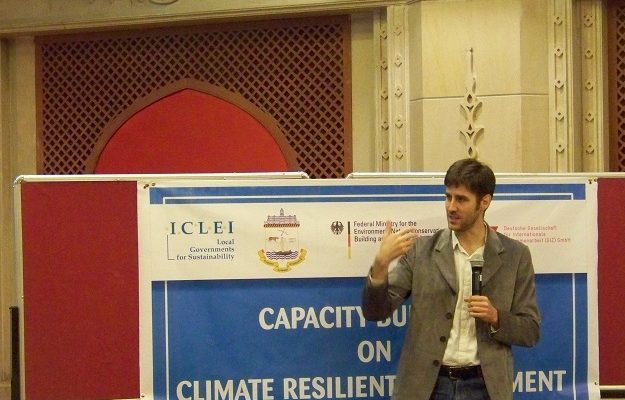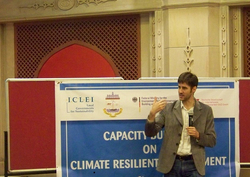Capacity Building on Climate Resilient Development for Government Officials in Chennai

ICLEI South Asia organised a training programme for senior officials of Greater Chennai Corporation and parastatal bodies in Chennai on climate change and urban resilience to build their capacity to assess climate change threats and address them in the city.
The two-day workshop, held on 24th and 25th of October, focused on introduction to the basics of climate change, causes and impacts, the concepts of mitigation and adaptation, international conventions, and India’s targets and commitments, GHG emission inventorisation, urban systems analysis, risk and vulnerability assessment, mainstreaming climate change into urban planning and action planning, integration of climate change into existing or upcoming projects through policies and schemes and financing of the projects. It also included examples of experiences from other cities for replication and adaptation in Chennai.
The training programme was designed to briefly describe the process in which local governments can prepare local climate resilience strategies and incorporate them into their administrative processes. The methodology is based on the ICLEI ACCCRN Process developed by ICLEI South Asia under the Asian Cities Climate Change Resilience Network Project and the Green Climate Cities Program of ICLEI. The training programme also drew upon the process followed in the Training of Trainers on Cities and Climate Change conducted by GIZ of which ICLEI South Asia was a part.

The training programme reached out to more than 30 participants in the Greater Chennai Corporation and the parastatal organisations that work closely with Chennai. The workshop participants included officials from the Greater Chennai Corporation. Departments such as Mechanical Department, Electrical Department, Works Department, Storm Water Drainage Department, Buildings Department, Special projects, among others were represented. Participants from parastatal organisations such as Chennai Metropolitan Water Supply and Sewerage Board (CMWSSB), Tamil Nadu Slum Clearance Board (TNSCB) and Chennai Metropolitan Development Authority (CMDA) were also part of the training workshop.
It was recognised by all participants to be an extremely useful and opportune event to clarify concepts of climate change and resilience building.
The participants have mentioned that awareness generation is one of the key approaches to help in integration of climate action to urban development, and the training workshop was an attempt to generate such awareness among city planning officials.

A city level study, particularly for the projections, would be useful to better planning purposes.
It is recommended by the participants that a Climate Change Cell should be set up in the corporation that can facilitate the incorporation of climate change concepts into the development projects in the city, right at the planning stage. The Cell can also facilitate engagement with different departments, parastatal organisations, and external agencies that can strengthen the development project planning by including climate concepts into them and also facilitate greater uptake and acceptance among different stakeholders.
In addition, the Cell can also organise regular trainings for officials at different levels on climate change and how to incorporate climate change into urban development.
Include the part about setting up a climate cell – that is the whole purpose of the project. It is written in the last section of the report.




